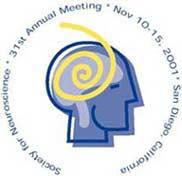[ ONLINE INTERVIEW ]

to unlock Alzheimer's mystery
NEURONAL CHOLESTEROL PATHOLOGY
IS THE CAUSE OF ALZHEIMER’S DISEASE
LAY SUMMARY ARTICLE FOR TEACHING SESSION No.23.3
Natalia V. Koudinova & Alexei R. Koudinov
For continuous coverage, questions and to locate our related recent key FASEB J and Neurosci Lett articles please see: http://anzwers.org/free/neurology/
Several recent reports provided important knowledge on how slowing cholesterol creation in the brain “might inhibit amyloid beta production, and reduce the accumulation of amyloid beta that causes Alzheimer’s disease”.
Based on our recent study (see our scientific session No. 752.5, teaching session No.23.4 and their press book lay language summaries for details) and reports by others, we believe that cholesterol homeostasis failure itself has a key role for neuronal degeneration and is the principal cause for several Alzheimer’s disease hallmarks not limited to brain amyloid. This presentation is our viewpoint, because it is grounded on our new interpretations of published reports.
Of these reports two turn-of-the-century articles present clinical data that statins, a commonly used cholesterol lowering drugs that block an enzyme creating cholesterol, could help delay memory loss and Alzheimer's disease. The failure of neuronal cholesterol metabolism appeared to cause dysfunction of cholinergic system (an important member of brain neurotrasmitter machinery), oxidative stress, pathologic break in amyloid beta protein neurochemistry, and amyloid plaque buildup. The latter knowledge was corroborated by amyloid beta deposits in the brain of rabbits and mutant human amyloid precursor protein transgenic mice chronically fed a cholesterol diet, and by Alzheimer’s-like amyloid formation in cholesterol-fed rats, also expressing increased creation of cholesterol in the brain and impaired synaptic function (the subject of our last year 30th Annual Meeting 2000 scientific presentation and press book summary).
Our very recent study provided evidence that faulty neuronal cholesterol metabolism causes Alzheimer’s features of excessive phosphorylation of TAU protein, degeneration of neuronal cell processes, and injured neurotransmission and synaptic plasticity (see our scientific session “Essential role for cholesterol in synaptic plasticity and neuronal degeneration” Slide Show and its’ press book summary article for detailed explanation of terms).
Experimentally shown to specifically modulate brain cholesterol, statins possibly exert their protective effect primarily by correcting neuronal cholesterol and secondarily by slowing or reversing amyloid and TAU pathology. It is documented that brain cholesterol is a delicate substance very sensitive to many influences, ranging from fat preparation diets, chemicals used for drugs delivery and food additives to learning process itself.
Further understanding of cholesterol neurochemistry associated with learning, memory, cholesterol-lowering medicine and “no cholesterol” lifestyle is becoming an obstacle of neurodegeneration understanding. To overcome it we have to concentrate research efforts on cholesterol front of Alzheimer's battle in addition to yet failed to bring the disease cure 15-years-long amyloid odyssey.
We joined the study of Alzheimer's disease in 1992. At that time it was shown that amyloid beta is a normal protein. We realized that the nature of amyloid buildup in the disease, as well as its biological cause and consequences, could be understand through the study of the protein normal biology.
We were the first who showed that amyloid beta normally circulates in blood and cerebrospinal fluid in association with lipoproteins, a lipid-protein complexes that maintain turnover of cholesterol and other fats in the body.
We were also the first who proposed the interrelation between amyloid beta biochemistry and lipid metabolism as a “missing link in Alzheimer’s puzzle” (for details see our commentary article that we published in 1998 in The FASEB J, the leading american experimental biology journal), the basis of our current study and our Alzheimer’s research philosophy.
This our background research was also recognised by Science magazine that named Natalia Koudinova a finalist in Pharmacia Biotech and Science Magazine Prize for Young Scientists Competition 1997.
***********
For further details please see our another teaching neuroscience session (also presented in the meeting press book) entitled “Brain cholesterol and neuronal function” (session #23.4) and scientific session “Essential role for cholesterol in synaptic plasticity and neuronal degeneration” and its press book summary article (session #752.5) and slide show.
Also please note that full text of this teaching session is also available as
Text copyright © 2001 by Alexei Koudinov and Natalia Koudinova
This article or any it part may be reproduced without our permission in case your report includes citation of the article source, our names and you let us know where your report will appear or has appeared.
To cite this article use:
N.V. Koudinova & A.R. Koudinov. (2001) Neuronal
cholesterol pathology is the cause of Alzheimer's disease. 31st Soc Neurosci
Meeting Press book
![]()
![]()


![]()
Call Inter cell:
(972 55) 26-4823
or place:
[ ONLINE INTERVIEW ]
Full text article
of this teaching session become available November 27,
2001.
***********
Thank you for sharing with us our scientific excitement
